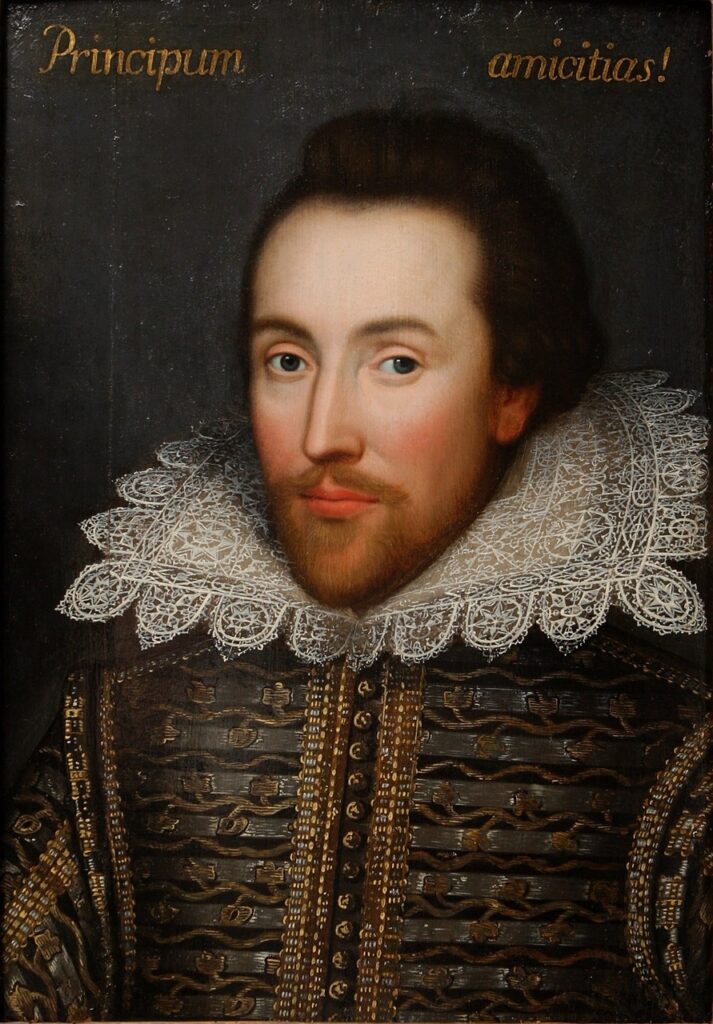Did you know that William Shakespeare introduced more than 1,700 new words into the English language, many of which he invented?
The Bard of Avon used over 20,000 words in his 38 plays and 150 poems, while adding a plethora of new words to the English lexicon.

Why did Shakespeare create so many new words?
Scholars who study Elizabethan literature postulate three possible reasons for the Bards bountiful creation of new words.
Shakespeare wrote in iambic pentameter; this means that the verses are ten syllables long and alternate between stressed and unstressed syllables.
A stressed syllable has a longer, louder, and higher sound than the other syllables in the word.
But Shakespeare found that when he wished to convey a certain thought, no variations of known words would suffice and adhere to the iambic pentameter cadence.

How did The Bard accomplish this monumental task?
He fundamentally achieved this lofty goal by adding prefixes and suffixes to known words. In most cases, this allowed audiences to be able to understand what Shakespeare was trying to say because they would be somewhat familiar with both the root words and their literary appendages.
For example: base becomes baseless; gloom becomes gloomy; palm becomes palmy, etc.
However, there were other methods Shakespeare employed to create new words:
Poets during the Elizabethan era had a proclivity to create compound words. Take the word amber, if something is the color of amber it would be logical to call it amber-colored.
Shakespeare was well-versed in foreign languages and would, on occasion, incorporate those words into his character English speech. Subsequently, other English authors would use those words in their prose, thus making them part of English literature.
Shakespeare was fond of having his lower social-strata character attempt to speak like the upper-class, yet fail.
A classic example is the character in Henry V, Mistress Quickly, tries to describe Anne’s (Anne Bullen is a young lady at court in the play), propensity to suffer melancholy moods, however it comes out of her mouth as: “she is given too much to allicholy and musing.” When the word allicholy reappears in 19th century writing, it then became part, albeit rare, of the lexicon.
Here are a few of the words whose first use is attributed to Shakespeare
“Alligator: (n) a large, carnivorous reptile closely related to the crocodile
Romeo and Juliet, Act 5 Scene 1
Bedroom: (n) a room for sleeping; furnished with a bed
A Midsummer Night’s Dream, Act 2 Scene 2
Critic: (n) one who judges merit or expresses a reasoned opinion
Love’s Labour’s Lost, Act 3 Scene 1
Downstairs: (adv) on a lower floor; down the steps
Henry IV Part 1, Act 2 Scene 4
Eyeball: (n) the round part of the eye; organ for vision
Henry VI Part 1, Act 4 Scene 7
Fashionable: (adj) stylish; characteristic of a particular period
Troilus and Cressida, Act 3 Scene 3
Gossip: (v) to talk casually, usually about others
The Comedy of Errors, Act 5 Scene 1
Hurry: (v) to act or move quickly
The Comedy of Errors, Act 5 Scene 1
Inaudible: (adj) not heard; unable to be heard
All’s Well That Ends Well, Act 5 Scene 3
Jaded: (adj) worn out; bored or past feeling
Henry VI Part 2, Act 4 Scene 1
Kissing: (ppl adj) touching with the lips; exchanging kisses
Love’s Labour’s Lost, Act 5 Scene 2
Lonely: (adj) feeling sad due to lack of companionship
Coriolanus, Act 4 Scene 1
Manager: (n) one who controls or administers; person in charge
Love’s Labour’s Lost, Act 1 Scene 2
Nervy: (adj) sinewy or strong; bold; easily agitated
Coriolanus, Act 2 Scene 1
Obscene: (adj) repulsive or disgusting; offensive to one’s morality
Love’s Labour’s Lost, Act 1 Scene 1
Puppy dog: (n) a young, domestic dog
King John, Act 2 Scene 1
Questioning: (n) the act of inquiring or interrogating
As You Like It, Act 5 Scene 4
Rant: (v) to speak at length in inflated or extravagant language
Hamlet, Act 5 Scene 1
Skim milk: (n) milk with its cream removed
Henry IV Part 1, Act 2 Scene 3
Traditional: (adj) conventional; long-established, bound by tradition
Richard III, Act 3 Scene 1
Undress: (v) to remove clothes or other covering
The Taming of the Shrew, Induction Scene 2
Varied: (adj) incorporating different types or kinds; diverse
Titus Andronicus, Act 3 Scene 1
Worthless: (adj) having no value or merit; contemptible
The Two Gentlemen of Verona, Act 4 Scene 2
Yelping: (adj) uttering sharp, high-pitched cries
Henry VI Part 1, Act 4 Scene 2
Zany: (n) clown’s assistant; performer who mimics another’s antics
Love’s Labour’s Lost, Act 5 Scene 2”







